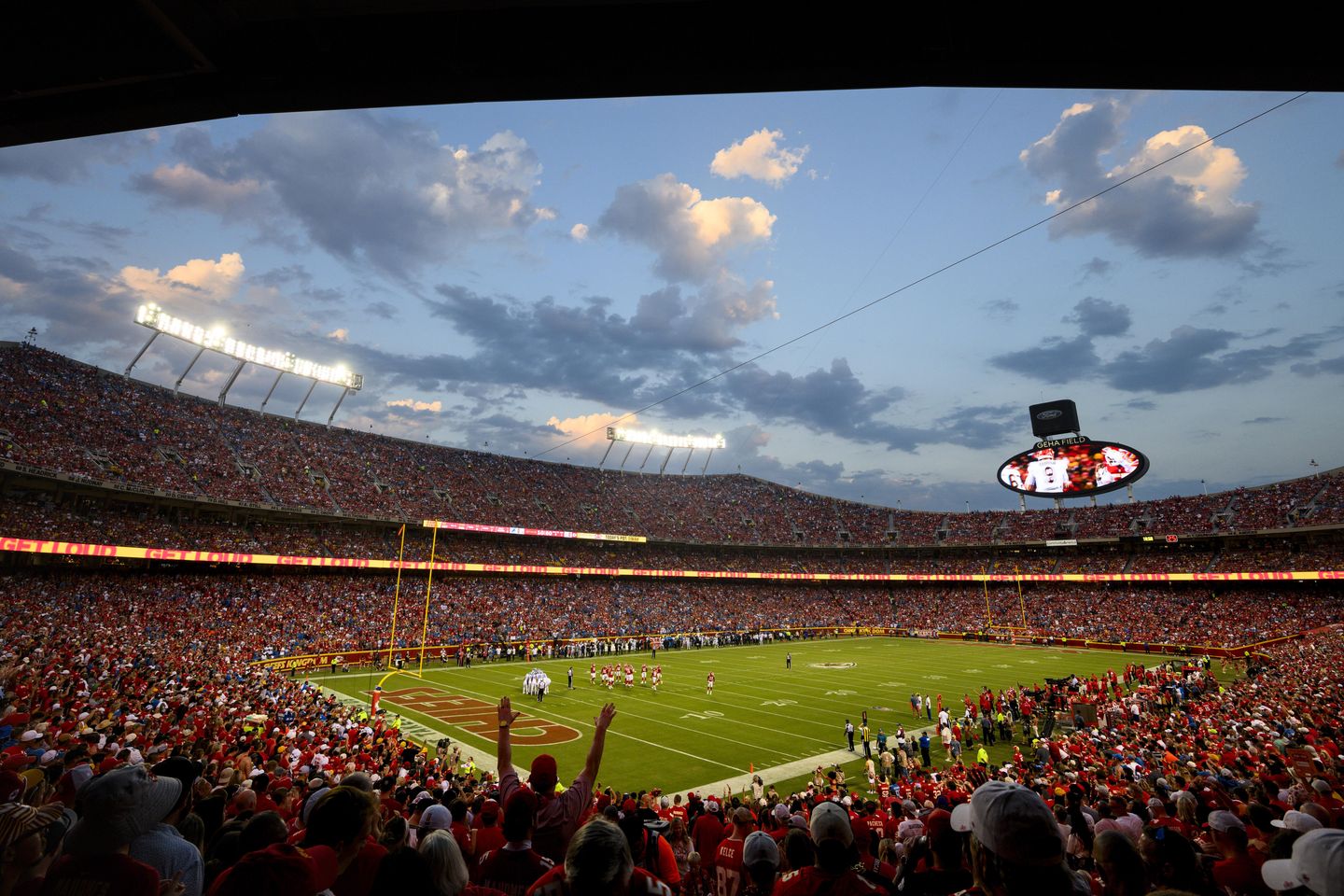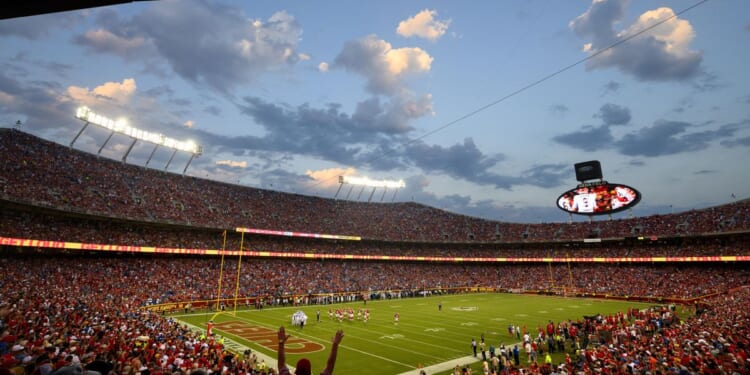
KANSAS CITY, Mo. (AP) – The Kansas City Chiefs are planning an $800 million renovation to Arrowhead Stadium, the third-oldest stadium in the NFL, that would begin after the team plays host to games for the 2026 World Cup and take about four years to complete.
The project is contingent on the extension of a tax of three-eighth of a cent by voters in Jackson County, Missouri, on April 2. That money has been used for upkeep at Truman Sports Complex of Arrowhead and neighboring Kauffman Stadium, which the Royals intend to leave for a new downtown ballpark before the current lease expires after the 2030 season.
“We would not be willing to sign a lease for another 25 years without the financing to properly renovate and reimagine the stadium,” acknowledged Chiefs chairman Clark Hunt, whose family would contribute $300 million toward the overall project. “So the financing puzzle is very important to us to make sure we have enough funds to do everything we’ve outlined.”
The scope of the renovation project, which was revealed Wednesday during a news conference at Arrowhead, would touch every aspect of the 52-year-old building, from the seating bowl to luxury amenities to the tailgating scene.
There would be a new parking deck built to help provide players, VIPs and other special guests with a better access point. New pedestrian bridges would help fans get from parking lots to the stadium. There would be new ribbon boards, the video boards at each end would triple and quadruple in size and the existing suites around the stadium would be renovated.
The two biggest changes to the stadium itself would come above it and below it.
For the first time since the stadium was built in 1972, the Chiefs are planning to build a 360-degree upper concourse, which would allow fans to more easily flow around the stadium. It would also create more food stations, restrooms and merchandise areas, and that would alleviate congestion elsewhere in the stadium.
In the end zones, the Chiefs are planning to excavate under the existing structure to create club spaces similar to those found at Allegiant Stadium in Las Vegas, where the Raiders play and the Chiefs recently won their third Super Bowl in the past five years.
“You sit on the field level of Allegiant Stadium and see that amazing end zone suite they have, and you say: ‘Wow. Too bad we can’t do that,’” Chiefs president Mark Donovan said. “We found a way to do that, and not only bring you the best of the newest buildings in the NFL, but put it inside the iconic Arrowhead Stadium.”
Another big change would come outside the stadium, where the Chiefs envision a tailgating plaza built on the site of Kauffman Stadium. The covered area would provide a gathering space on game day but also could be used year-round for events.
The original plan for the Truman Sports Complex called for a rolling roof that could cover Arrowhead and Kauffman stadiums, but the structure was never built. The Chiefs revisited the idea of a roof over Arrowhead roughly two decades ago, when it underwent its last major renovation, but the public was skeptical of the project and the idea ultimately was scrapped.
Even though a roof conceivably could help Kansas City play host to the Super Bowl, Hunt said Wednesday it was never seriously considered for this round of renovations – and in fact, the team prefers to play outdoors in the elements.
“We certainly feel like it’s a competitive advantage for us,” he said.
The Chiefs also considered a mixed-use development around Arrowhead, where there are few restaurants, hotels and entertainment options. But studies found that such an investment would not provide a positive financial return.
“This is not a location that is not worthy of developing,” Donovan said, “as harsh as that sounds.”
So, the scope of the project was narrowed to Arrowhead itself. Hunt said the goal is to maintain its history and mystique while providing fans with the amenities found in more modern stadiums across the NFL.
“What my dad loved best about the stadium was the connection the team had with our fanbase,” Hunt said of his father, Lamar Hunt, who founded the team in 1959 in Dallas. “He loved this building for what it means to the fans, and we still believe it is one of the best stadiums in the National Football League and a bucket-list destination for fans across the NFL.”
___

